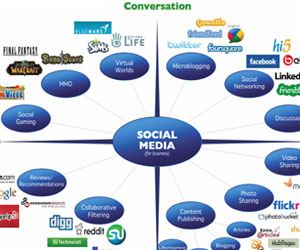



Niche marketing is a powerful strategy for businesses looking to stand out in a crowded marketplace by catering to specific, specialized customer segments. While it offers many rewards, it also presents unique challenges. This article explores both the challenges and rewards of niche marketing.
Challenges Of Niche Marketing
Limited Audience: Perhaps the most significant challenge in niche marketing is the limited size of the target audience. Since niches are inherently smaller markets, reaching enough customers to sustain your business can be difficult. It requires a careful balance between identifying a profitable niche and ensuring there are enough potential customers to support your business.
Market Volatility: Niche markets can be more susceptible to economic fluctuations and changes in consumer preferences. If your chosen niche is sensitive to market conditions, you may experience variability in demand, which can affect your business's stability.
Intensive Market Research: Successful niche marketing demands extensive market research to identify the right niche and understand its nuances thoroughly. This research can be time-consuming and resource-intensive, especially when compared to broader marketing approaches.
Competition: While niche marketing can reduce competition compared to broader markets, it doesn't eliminate it entirely. Competing businesses that have identified the same niche can pose a challenge. To stand out, you must offer something truly unique or superior.
Marketing Costs: Marketing to a niche audience can be costly. Since the audience is smaller and may require specialized advertising or outreach, the cost per customer acquisition can be higher than in broader markets.
Rewards Of Niche Marketing
Reduced Competition: One of the most significant rewards of niche marketing is the opportunity to operate in a less crowded space. With fewer competitors, you have a better chance of capturing the attention and loyalty of potential customers.
Enhanced Customer Loyalty: By addressing the specific needs and preferences of a niche audience, you can build stronger customer relationships. Customers who find your products or services highly relevant to their needs are more likely to become loyal and provide repeat business.
Higher Profit Margins: Niche markets often allow for higher profit margins. Customers within these segments are often willing to pay a premium for specialized products or services that address their unique requirements.
Expertise And Authority Building: Focusing on a niche allows you to become an expert in that field. Establishing yourself as an authority can significantly enhance your brand's reputation and trustworthiness.
Personalization: Niche marketing allows for personalized interactions with customers. This level of personalization creates a strong connection between the business and its audience, leading to higher customer satisfaction and loyalty.
Efficient Resource Allocation: Targeting a niche allows you to allocate resources more efficiently. With a defined target audience, you can focus your marketing efforts and budgets on strategies that are more likely to yield results, reducing wasteful spending.
Niche marketing offers both challenges and rewards for businesses. While it may require intensive market research, face competition, and have limited audience size, it also presents the opportunity for reduced competition, enhanced customer loyalty, higher profit margins, expertise and authority building, and personalized customer interactions. Choosing the right niche and effectively navigating these challenges can lead to long-term success and profitability for businesses that embrace this strategic approach.
 4. SMS Marketing
4. SMS Marketing
Text messaging, or SMS marketing, is an immediate and direct way to engage with your customers. Sending promotional offers, updates, and important information via text messages can be highly effective. However, it's important to obtain explicit consent from users and provide an easy opt-out option to respect their privacy.
5. Location-Based Marketing
Utilize the location data provided by mobile devices to deliver relevant and timely messages to users based on their geographic location. Geofencing, for instance, allows you to send notifications or offers to users when they enter a specific geographical area, such as near your store or a competitor's location.
6. Mobile SEO
Optimize your website and content for mobile search engines. Mobile SEO is essential to ensure that your website ranks well in mobile search results. Factors like page load speed, mobile-friendly design, and local SEO optimization play a significant role in mobile search rankings.
7. Video Marketing
The popularity of video content on mobile devices is undeniable. Create engaging video content that is optimized for mobile consumption. Platforms like YouTube, TikTok, and Instagram are ideal for sharing video content and reaching a broad audience.
8. Mobile-First Design
Design your marketing materials, including email campaigns and landing pages, with a mobile-first approach. Ensure that your content is easily readable and navigable on mobile screens, as users often access emails and websites on their smartphones.
9. Mobile Analytics
Utilize mobile analytics tools to gather data about user behavior and campaign performance. This data can help you refine your strategies and make data-driven decisions for optimizing your mobile marketing efforts.
 Business Plan: Develop a detailed business plan that outlines your goals, strategies, budget, and revenue projections. This plan will serve as your roadmap and a valuable reference point throughout your online business journey.
Business Plan: Develop a detailed business plan that outlines your goals, strategies, budget, and revenue projections. This plan will serve as your roadmap and a valuable reference point throughout your online business journey.
Legal And Financial Setup: Register your business, obtain the necessary permits, and set up your financial structure. Ensure that your online business complies with all relevant laws and regulations.
Choose A Business Model: Decide on the online business model that suits your idea. Options include e-commerce, subscription services, affiliate marketing, and more. Select the one that aligns with your goals and resources.
Build A Strong Online Presence: Create a professional and user-friendly website or e-commerce platform. Invest in high-quality design, easy navigation, and mobile responsiveness. This is where your customers will interact with your business.
Content And Branding: Develop a strong brand identity and create high-quality, engaging content.
 A Win-Win Proposition: Affiliate marketing has transformed into a win-win proposition for all involved parties. For businesses, it's a cost-effective way to reach a broader audience and drive sales without the upfront investment of traditional advertising. On the other hand, affiliate marketers leverage their digital expertise to earn commissions by connecting products or services with the right audience.
A Win-Win Proposition: Affiliate marketing has transformed into a win-win proposition for all involved parties. For businesses, it's a cost-effective way to reach a broader audience and drive sales without the upfront investment of traditional advertising. On the other hand, affiliate marketers leverage their digital expertise to earn commissions by connecting products or services with the right audience.
The Digital Marketplace Advantage: The digital marketplace encompasses a vast array of niches and industries, from e-commerce giants to niche-specific boutiques. Affiliate marketing's adaptability allows marketers to tap into this diversity. Whether you're promoting fashion, technology, health products, or educational services, there's a place for affiliate marketing.
Global Reach: With the internet connecting people worldwide, affiliate marketing transcends geographical boundaries. Affiliate marketers can seamlessly reach global audiences, making it an attractive option for those seeking international business opportunities. The digital marketplace is their playground.
Data-Driven Success: In the digital marketplace, data is king. Affiliate marketing excels in this data-driven environment. Marketers have access to a wealth of analytics and performance metrics, enabling them to fine-tune their strategies, target the right audience, and optimize their campaigns for maximum results.
Diverse Affiliate Models: Affiliate marketing isn't limited to a single model. There are various ways to earn commissions, including pay-per-sale, pay-per-click, pay-per-lead, and more. This diversity allows affiliate marketers to choose the model that best suits their niche and audience.
Content Is Key: Content plays a pivotal role in the digital marketplace, and affiliate marketing is closely intertwined with content creation. Bloggers, YouTubers, social media influencers, and website owners produce valuable content that aligns with affiliate products or services, providing their audiences with informative, engaging, and persuasive information.






Maximizing Earnings From Your Passion
 2. Display Advertising: Display advertising is a passive income strategy that involves placing ads on your blog. Platforms like Google AdSense offer bloggers the opportunity to earn revenue based on ad clicks and impressions. While it doesn't generate significant income in the early stages, it can become more lucrative as your blog's traffic grows.
2. Display Advertising: Display advertising is a passive income strategy that involves placing ads on your blog. Platforms like Google AdSense offer bloggers the opportunity to earn revenue based on ad clicks and impressions. While it doesn't generate significant income in the early stages, it can become more lucrative as your blog's traffic grows.
3. Sponsored Content: Collaborating with brands for sponsored content is another profitable strategy. Companies pay bloggers to create content that promotes their products or services. It's crucial to maintain transparency and ensure that sponsored content aligns with your blog's niche and appeals to your audience.
4. Selling Digital Products: Many bloggers have expertise in their respective niches. They can create and sell digital products like e-books, online courses, templates, or printables. These products offer bloggers a source of passive income while providing value to their audience.
5. Membership And Subscription Models: Platforms like Patreon and Substack allow bloggers to offer premium content, exclusive perks, or early access to subscribers who pay for membership. This model can create a loyal following and provide a steady source of income.
6. Consultation And Coaching Services: If you've established yourself as an authority in your niche, consider offering consultation or coaching services to your readers. Many individuals are willing to pay for personalized guidance and insights from someone they trust.
7. E-commerce And Merchandise: Some bloggers turn their blogs into e-commerce platforms, selling physical merchandise related to their niche, such as branded products, apparel, or accessories. This approach not only generates income but also helps build brand loyalty.
 Validate Your Idea: Test your business idea in the digital marketplace. Create a minimum viable product (MVP) to gauge interest and gather feedback from potential customers. This allows you to refine your concept before investing heavily.
Validate Your Idea: Test your business idea in the digital marketplace. Create a minimum viable product (MVP) to gauge interest and gather feedback from potential customers. This allows you to refine your concept before investing heavily.
Build A Strong Online Presence: Your digital identity is a cornerstone of your business. Invest in a professional website, robust social media profiles, and engaging content to showcase your expertise and build trust with your audience.
Leverage Technology: Embrace technology to streamline your business processes. Use tools and software for project management, customer relationship management (CRM), and analytics. Automation can save time and increase efficiency.
Digital Marketing: Craft a comprehensive digital marketing strategy. Utilize search engine optimization (SEO), content marketing, social media advertising, email campaigns, and pay-per-click (PPC) ads to reach your target audience and generate leads.
Content Is King: High-quality, informative content not only attracts visitors but also establishes your authority in your niche. Regularly publish blog posts, articles, videos, and other content that resonate with your audience.
Engage On Social Media: Social media platforms are valuable tools for engagement and brand building. Use them to connect with your audience, share content, and interact with potential customers.
Networking: Build a strong network of contacts within your industry. Attend webinars, conferences, and online forums to connect with other entrepreneurs, potential partners, and mentors.
E-commerce Strategies: If you're entering the e-commerce space, optimize your website for a seamless shopping experience.